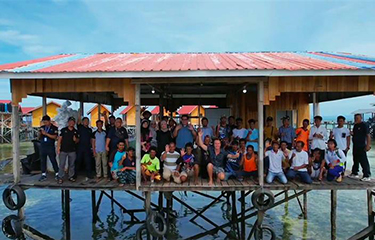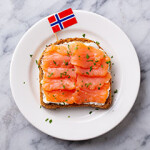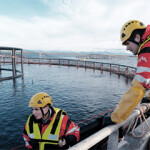GSSI opens public commentary for BAP 2.0 Global Benchmark Tool; IPNLF expands geographic focus

SeafoodSource is closely following the sustainable seafood movement by compiling a regular round-up of sector updates pertaining to sustainability initiatives.
The consultation is open for public commentary until 8 September and goes to the GSSI Steering Board. The consultation comments will be made publicly available upon the final decision of continued recognition.
BAP is undergoing benchmarking for its BAP Farm Standard (version 3.0), Salmon Farms Standard (2.3), and Mollusk Farms Standard (1.1), GSSI said in a release.
- Portland, Oregon U.S.A.-based New Seasons Market announced its 7-week certified campaign with the Aquaculture Stewardship Council (ASC), "Sea Green. Be Green.," in time for National Seafood Month.
The campaign will run from 12 September through October 2023 and highlight in-store and online certified seafood in the U.S. states of Washington and Oregon.
“After our first incredible event in Portland last April – when we teamed up with Bamboo Sushi and Blue Ocean Mariculture to host an Earth Month extravaganza centered around eating seafood responsibly – we couldn’t wait to come back,” ASC North America Marketing Manager Athena Davis said in a release. “ASC and our certified partners were blown away by the incredible reception we received from the Portland community. It proves that even in a region that rightfully values the historical importance of wild fishing, there’s room for alternatives that not only provide healthy, consistent protein but can actually help restore wild fish populations.”
According to ASC, the campaign will feature limited-time specials on ASC-certified products, including Riverence Provisions trout, Sea Tales smoked salmon and Fishwife tinned seafood; In-store signage and educational materials about the assurance behind ASC’s label and the importance of shopping for responsibly raised seafood; and digital and social media collaborations that highlight the organizations’ mutual sustainability commitment, store specials, and the people behind the seafood.
- The International Pole and Line Foundation (IPNLF) has expanded its geographic focus to include Malaysia and Tanzania.
The nonprofit organization focuses on tuna fishery development around the world. The funding for the expansion comes from the support of the Common Oceans Tuna Project, funded by the Global Environment Facility (GEF), and pioneered by the United Nations Food and Agriculture Organization (FAO).
"The Department of Fisheries Malaysia were very pleased to host the recent site visit, following up on discussions I previously had with IPNLF staff about opportunities to improve the performance, sustainability, and trade opportunities for our local one-by-one tuna fishers,” Malaysia Department of Fisheries Senior Fisheries Officer Arthur Besther Sujang said in a release. “We have skilled tuna fishers traditionally using one-by-one tuna fishing gears in Malaysia who are very eager to receive further support in improving their fishing practices, and we hope IPNLF will also be able to engage its global network of members in global seafood supply chains to reward fisher improvements with access to premium markets that can promote the financial security and livelihoods of our local tuna fishing communities."
The organization works with fisheries in the Atlantic, Indian, and Pacific oceans, and in Indonesia, Maldives, Azores, Brazil, Cape Verde, Oman, and South Africa, among other countries.
“IPNLF are able to train fishers in at-sea handling practices for tuna in order to maintain the highest quality. This will include correct gaffing and bleeding techniques, the iki jime technique for fast and ethical dispatch of the tuna, alongside the implementation of harvest handling and cold-chain best practices," IPNLF Fisheries Improvement Consultant Craig Turley said in a release. "Should the fishers follow all of these steps, the tuna should be of higher quality, making it suitable for the export market, after which it will be possible to pay a premium to the fishers, incentivizing the continued implementation of the improved handling and processing techniques. The additional income linked to such improvements could make a huge difference in the lives of local fishers and their dependents."






Share